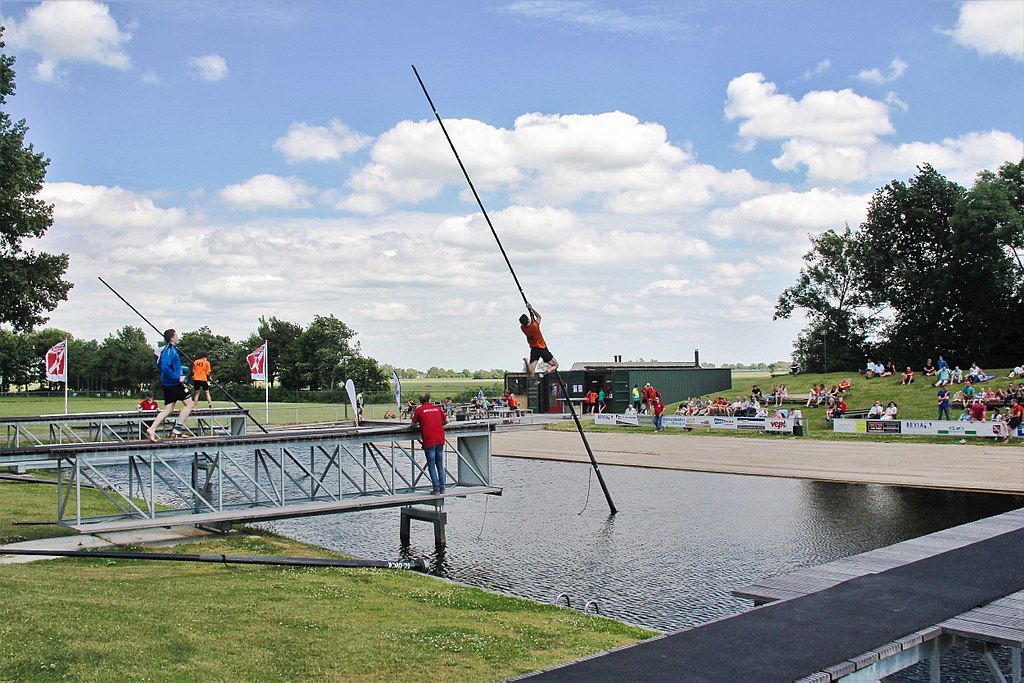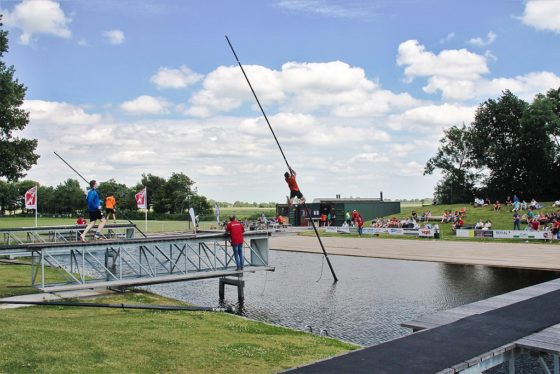Medieval Frisian warriors used dyke jumping poles in battle


The Dutch sport of dyke jumping – or ‘fierljeppen‘ – can trace its roots back to medieval times, when Frisian warriors used their long spears to cross waterways, experts have discovered.
A study of iron crampons in the collection of the Fries Museum produced the first known evidence that soldiers used the technique in battle, more than a century after the artefacts were found.
The discovery was made by junior curator Casper van Dijk after he examined the objects, labelled ‘travel candlesticks’, in the museum’s medieval weapons collection.
He determined that the iron crampons, or kletsies in Old Frisian, held not candles but wooden poles, used both as weapons and to vault over ditches and other obstacles in the soggy soil of Friesland, a technique still practised today in the sport of fierljeppen (‘far jumping’).
Frisian warriors have long been known to have used the spears. An account of the battle of Laaxum (1498) mentions a ‘wood of poles’ which confronted an army, used to travel over the battlefield quickly and efficiently.
Medieval books, drawings and seals all show soldiers carrying the spear but no physical evidence that they were used to cross water had ever been found.
A replica of the vaulting pole complete with kletsie was made and tested by fierljepper Ysbrand Galama, who said it ‘worked very well’.
Although Friesland is commonly associated with fierljeppen, weapons of the same type and period have been found in other areas with marshy soil, from Flanders to Nordfriesland in the north of Germany.
The replica and the kletsies will be on show at the Fries Museum from September 10 as part of the exhibition Vrijheid, Vetes en vagevuur (Freedom, feuds and purgatory) a history of Friesland in the Middle Ages.
Thank you for donating to DutchNews.nl.
We could not provide the Dutch News service, and keep it free of charge, without the generous support of our readers. Your donations allow us to report on issues you tell us matter, and provide you with a summary of the most important Dutch news each day.
Make a donation